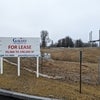Plea Deal Rejection Is Latest Headache For BSX
A Minnesota judge's recent rejection of a $296 million plea deal between Boston Scientific and the federal government capped off a difficult first quarter of the year for the Natick-based medical device manufacturer.
In addition to the plea deal snafu - which would have settled ongoing litigation stemming from the company's 2006 acquisition of Guidant Corp. - Boston Scientific also agreed in early February to pay $1.75 billion to settle a patent dispute with Johnson & Johnson. Then, on March 15 it agreed to remove two of its products from the market for more than two weeks after failing to notify the government of a manufacturing change.
"While this plea rejection is a pretty big deal, I think when you add it up with everything else that has been going on, it's got to be weighing on the company," said Jeff Jonas, a research analyst who tracks the medical device industry for New York firm Gabelli & Co.
Boston Scientific recently reported a $1.589 billion loss for the first quarter of 2010, compared to a $13 million loss during the same time period last year. Quarterly sales dropped from $2.01 billion in 2009 to $1.96 billion in 2010.
President and CEO Ray Elliott, who took over the top spot in June 2009, acknowledged the difficult times by simply saying in a statement, "it was a challenging quarter."
Kristen Stewart, a market analyst for Credit Suisse in New York, said that the shipment hold on two of the company' defibrillators last month could mean the loss of $72 million in sales for the company. For the year, she expects the company's sales to be off $300 million.
Jonas estimates that the company could lose 4 to 5 percent of its market share this year to competing medical device makers Medtronic and St. Jude Medical Inc., which are both headquartered in Minnesota.
Boston Scientific's stock has fallen gradually since the beginning of the year dropping about 25 percent from $9 per share in the beginning of the year to $6.68 as of May 4.
On top of those issues, in late April a Minnesota district court judge rejected the plea deal in the Guidant case.
The case began before Boston Scientific purchased Guidant for $27 billion in 2006. According to legal documents, Guidant executives knew as early as 2002 that its products could short-circuit and fail. Boston Scientific agreed to a plea deal with the government to clean up the Guidant issues. In that deal, the company pled guilty to two misdemeanor charges related to misrepresenting the extent of the problem and failing to report manufacturing changes made to fix the problem to the government, and agreed to pay more than $296 million to the government.
The U.S. Department of Justice said the please deal was the largest criminal penalty a medical device company has ever paid.
But U.S. District Court Judge Donovan Frank in Minnesota rejected the deal last week, noting in his 37-page opinion that Boston Scientific had not done enough to prove to the court that appropriate measures have been taken to ensure such an issue does not happen again.
Frank said the plea is "not in the best interests of justice" because it does not address the "history and criminal conduct."
"In any level case, you always have to sell it to the judge," said Kenneth Pickering, a partner at Worcester-based law firm Mirick O'Connell's business litigation division. "In this case, as is common even in minor criminal cases, the two sides can finally hammer out a deal, but it's contingent upon a judge's approval."
Despite the rejection, Pickering said Boston Scientific has a clear roadmap of how to proceed. In the opinion, Frank said he would like to see Boston Scientific create a compliance and ethics program to ensure the problem does not happen again and he would like to see the company be put on probation and be monitored by the federal government.
Boston Scientific can either renegotiate the plea deal with the government based on the judge's requests or it can withdraw its guilty plea and proceed forward with a trial.
Boston Scientific declined to comment for this story, but the company did issue a press release expressing its "willingness to discuss modification" of the plea agreement.









0 Comments